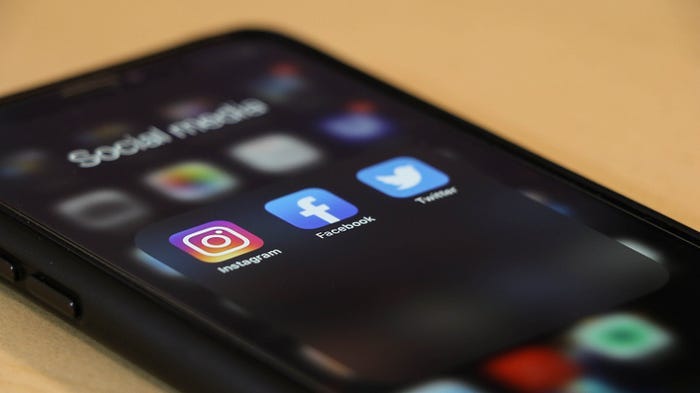How Social Media Trades Meaning For Likes While Fueling Division
You can’t tweet your way to virtue without suffering Facebook Groupthink
I got a chance to meet up recently with friends I’ve known since high school, but hadn’t seen for a while. Many of them have their own kids now. After the usual reminiscing, jokes, and catching up, we did what most people in their mid-forties do — complain like old farts.
But it wasn’t the typical whining about “kids these days,” or the dumb things our present culture promotes. It focused on social media and concentrated on two themes:
Certain people (specifically neighbors) became such irrational tools online, they’re no longer friends
Sadness that kids these days must navigate the minefield of social media and our happiness it came about after we got older
There was a general feeling that this new phenomena has taken us to uncharted territories that aren’t good. But that isn’t completely true. While Facebook and the like are new creations, the troubles they generate aren’t.
In fact, some prominent philosophers talked about these issues long before the internet existed. The underlying problems explain our social media issues. Plus, it covers the lack of meaning in our age, the ridiculous tribalism, and the general dissatisfaction with life.
Oddly, it starts simply with outsourcing some life decisions, then grows exponentially out of control. A computer scientist gives us a good example.
Virtue Signaling, Attention Farming, And Loss Of Inner Dialogue
“My experience led me to seek a mass demand of attention…Each cry out for the external slightly more desperate than the last. Broadcasting virtue to the world will never provide internal fulfillment regardless of how true it may be…You can’t tweet your way to self-respect.”
— Kris Nóva, “Ego Death”
An engineer at Github recently had a viral blog post, which wasn’t meant to be viral. In it, Kris Nóva details her exit from social media. She calls the relationship an addictive “selfish”, “self-centered”, and “self-righteous” loop.
She refers to social media like carnage from an accident on the side of the road you can’t stop staring at. It’s an attention economy, which breeds hopelessness. Nóva says:
“We aren’t using social media to drive action. We are using it to farm a false sense of worth. To cast stones at anyone who foolishly stumbles into the latest virtue-trap. Petty nuance has replaced bold hope.”
She refers to online posts as “serotonin” and “accolade” farming.
These efforts to signal virtue drove her to more extreme lengths for attention and praise. Nóva thinks many suffer the same ailment, and it’s tearing them apart. Furthermore, it causes the afflicted to lose the ability to generate validation on their own — subcontracting it out to others.
But putting others in charge of internal validation has been a problem long before social media. Namely, you can see parallels in WWII.
Losing Yourself To Mass Movements
“A man is likely to mind his own business when it is worth minding. When it is not, he takes his mind off his own meaningless affairs by minding other people’s business.”
— Eric Hoffer, The True Believer: Thoughts on the Nature of Mass Movements
In a recent Substack article, blogger Rob Henderson reviewed philosopher Eric Hoffer’s book about mass movements, written in 1951. Hoffer wasn’t what you’d expect out of a philosopher. He was a longshoreman and migrant worker; while working with his hands, he read prolifically.
Hoffer combined this self-study with something he witnessed personally: the mass movements of Communism and Fascism. Often, there wasn’t much difference. He notes that if someone is open to a particular mass movement, they’re open to “any” movement.
The Nazi party before they controlled Germany actively recruited Communists to their side. In essence, they were the same type. And the general mass movement itself also has an ethos: the strongest aren’t good at solving problems, just frustrating their membership.
Why? Well, if they actually solved the problem, the movement would fold…hence, why would you? Moreover, frustrated followers will fight for the team.
While not providing any promised solution, the movement does something well. It protects the member from being an individual. All those hard personal decisions and thoughts are just outsourced. Hoffer calls this “substitution.”
If someone can’t find satisfaction in their own life, they’ll substitute a movement’s goals for theirs. Sounds a bit like Kris Nóva, doesn’t it? But we’re not done yet. This is only part of the mess, another philosopher explains the tribalism.
Machiavelli And Separating The Heretics
“A Prince needs to take care never to let escape from his lips anything contrary to these five qualities, seeming always to be compassionate, faithful, honest, humane, and religious. Nothing is more important than to seem to be religious.” — Niccolo Machiavelli, The Prince
Much of Machiavelli’s advice is about appearances. He coolly points out there’s a big difference between the way you “should” act versus how you must “really” act. That’s why he advises only to appear religious.
But in an age when we’re not religious, we deify a movement, and proclaim (or make a visible appearance to proclaim) our sacred allegiance to it. And those opposed? Well, they’re the modern form of heretics. Since they can’t be burned at the stake, other actions are demanded.

Machiavelli recommends you isolate them. He says:
“Who plots cannot be alone nor can he seek out anyone except malcontents. As soon as you share a secret with a malcontent, you give him ammunition to be content because he can gain advantage by informing.”
So, once isolated, heretics can only associate with other heretics, further diminishing them. Moreover, they’ll be at the mercy of others who may betray them to regain favor again with the holy.
Now, apply this all to your social media platform of choice. Outsource your personal validation to others, lock into a movement, and before you know it, you’re going to cyber war and isolating heretics. Plus, it continues into the actual world. Now, you’re not talking to your neighbors.
Coincidently, interaction with and greeting your neighbors is linked to higher well being, according to Gallop. So, what does isolation do when you cut them off — to both you and them? We’ll find out.
Fortunately, there may be a way to undo this infinite loop.
Disconnecting From The Mass Movement Of Social Media
As dark as Kris Nóva’s life became, she undid it by getting back into mountain climbing. It returned her confidence. Therefore, she didn’t need others’ accolades, and she tuned much of the social media tribes out.
So, it is possible. In addition, Eric Hoffer has some solid advice from the pre-internet era about spotting and avoiding caustic mass movements.
The first part involves yourself. Hoffer says the antidote to being one of those “ripe” to be swallowed by a movement is community. And not the shallow community of social media.
Mass movements only require obedience and outsourcing of goals, but a community requires reciprocal commitment and accountability between members. Hoffer says finding meaning in work also helps.
The second part involves spotting caustic mass movements. Hoffer says if their goals are very vague and don’t show any practical methods of implementation, avoid them. They’re frustration factories.
Ultimately, the good news is that while social media is a new force in the world, its detrimental effects aren’t. Philosophers like Hoffer and Machiavelli wrote books about them long before the internet. So, there is a path to put out the fire we start ourselves. Especially when we notice the smoke.
Don’t trade meaning for likes, it’ll only fuel division.
-Originally posted on Medium 9/1/23




